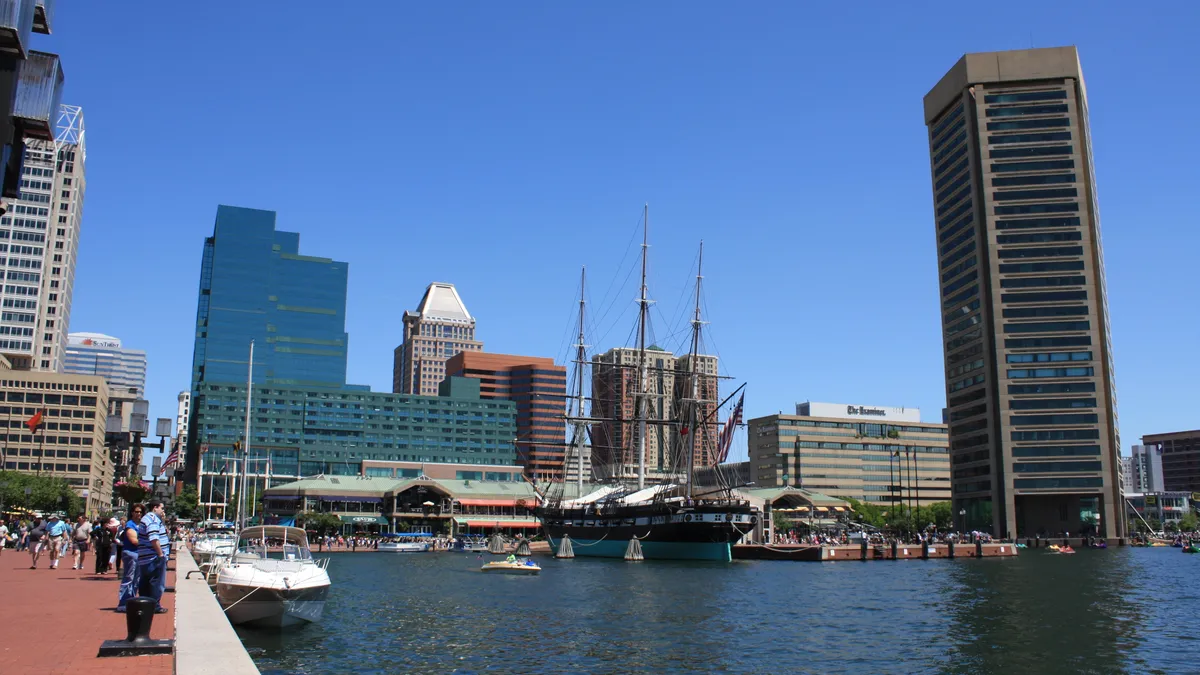Dive Brief:
- The Natural Resources Defense Council (NRDC) and The Rockefeller Foundation have partnered with the City of Baltimore in an effort to reduce commercial and residential food waste by 50% and 80%, respectively, by 2040.
- Key goals of the plan, called the Baltimore Food Waste Recovery Strategy, are to reduce the amount of food thrown away, increase donation and boost composting by residents and commercial venues alike.
- Public education through the national Save the Food campaign, surplus food donation by local businesses, and organics composting incentives are some tactics the city will use to achieve its mission.
Dive Insight:
Mayor Catherine Pugh set a goal of doubling the city's diversion rate upon taking office in 2017, and the city has circled around various proposals, but nothing definitive has been announced when it comes to organics until now. Details are still forthcoming on how exactly the city will boost its organics diversion, but combining that with a more holistic approach of also addressing food insecurity is a clear fit for the city.
Officials hope something can be done to help the city's residents in need, as around 25% of Baltimoreans don't have reliable food sources. NRDC estimates approximately 20% of the the city's 430,000 tons-per-year trash production — most of which is sent to the BRESCO waste-to-energy facility — is food that could otherwise be eaten. Regulatory and activist pressure has been mounting around that operation, potentially spurring more interest in limiting the amount of otherwise recyclable material that it's currently receiving.
The case for municipalities making moves to recover more food from the waste bin seems to be catching on as Baltimore is the second city to join the NRDC-led initiative. Denver announced a similar partnership back in June. Denver's program was launched as a pilot study to last two years, with the goal of achieving a 57% drop in residential food waste by 2030. Organizers also hope to lower the number of food-insecure households by 55% over the same period.
According to the NRDC, up to 40% of the U.S. food supply is wasted every year, costing consumers and businesses around $218 billion. It's a staggering figure that hasn't shown many signs of going down anytime soon. NRDC's report last year concluded 68% of waste food in residential settings is potentially edible, showing that programs such as this could have a major effect on other cities across the U.S. The study took place in New York, Denver and Nashville, Tennessee.











